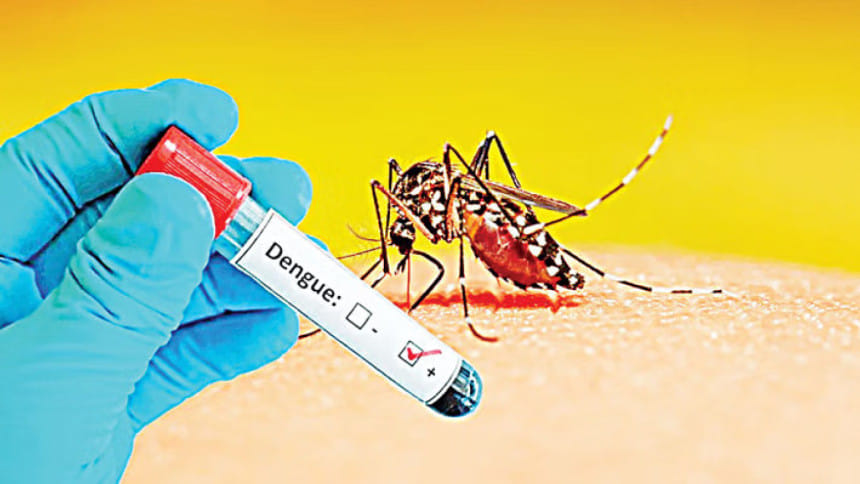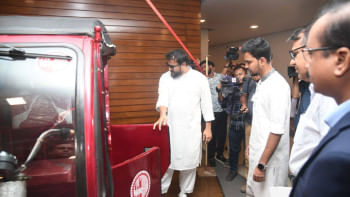Dengue cases triple in June

Dengue cases have nearly tripled in June compared to May, largely due to inadequate anti-mosquito drives across the country.
According to the Directorate General of Health Services (DGHS), a total of 9,065 dengue patients have been hospitalised so far this year as of Thursday. Of them, 4,720 cases were reported in June alone, with three days still remaining in the month. In comparison, May saw only 1,773 cases.
Dengue hospitalisations were relatively low earlier this year -- 1,161 in January, 374 in February, 336 in March, and 701 in April — before the sharp rise in May (1,773) and June (4,720). Notably, cases outside Dhaka remain disproportionately high, especially in Barguna district.
Experts have warned that immediate action is needed nationwide, particularly outside the capital, to control the spread of Aedes mosquitoes, which transmit the disease.
Entomologist Prof Kabirul Bashar said the trend shows a geometric rise in cases. "From May to June, the number of cases tripled. If this continues, cases could rise four to five times in July, and by August, it could be ten times higher than in May," he said.
Bashar explained that when both Aedes mosquitoes and infected patients increase together, the disease spreads rapidly. "Despite repeated warnings, authorities have not taken necessary action," he added.
He stressed that the government must prioritise larviciding and eliminating mosquito breeding sources instead of focusing on fogging. "Fogging should only be used in hotspots with confirmed cases. General fogging is ineffective, yet it's still the primary method used," he said.
Bashar recommended using Insect Growth Regulators (IGRs), which remain effective for up to three months. "These should be used along with larvicides. In places where chemicals aren't needed, people must clean and overturn water containers to stop breeding," he said.
He also highlighted the importance of public awareness. "Without community efforts to remove breeding sources at the household level, dengue will be hard to control."
Regarding the situation outside Dhaka, Bashar warned that all 64 districts could face worse outbreaks than in previous years. "Aedes mosquitoes are now present in every district," he said.
He urged the local government ministry to direct all deputy commissioners, municipalities, and city corporations to urgently destroy mosquito larvae and breeding sites. "The ministry should supply IGRs to local bodies or allow them to procure and distribute them with proper guidance," he said.
Entomologist GM Saifur Rahman echoed the warning. "The growing Aedes population is causing a geometric rise in dengue cases. Once infected, a mosquito can lay infected eggs, worsening the outbreak," he said.
Bashar added that current weather conditions are ideal for mosquito breeding. "In coastal areas, people often store rainwater during this season, creating perfect breeding grounds," he said.
He called for a dedicated vector control department to manage mosquito-borne diseases scientifically. "This department should handle cluster identification, surveillance, and targeted action. Without a scientific and structured approach, existing efforts will not succeed," he said.

 For all latest news, follow The Daily Star's Google News channel.
For all latest news, follow The Daily Star's Google News channel. 



Comments